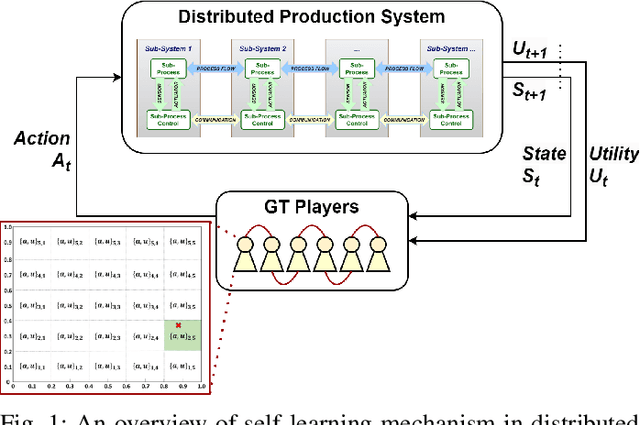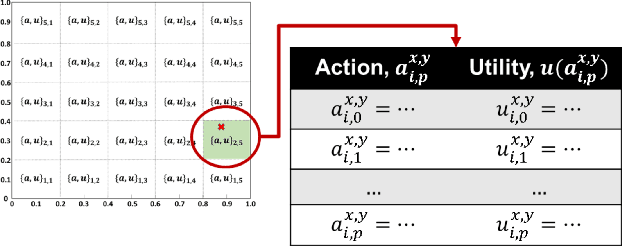Marlon Löppenberg
Gradient-based Learning in State-based Potential Games for Self-Learning Production Systems
Jun 14, 2024



Abstract:In this paper, we introduce novel gradient-based optimization methods for state-based potential games (SbPGs) within self-learning distributed production systems. SbPGs are recognised for their efficacy in enabling self-optimizing distributed multi-agent systems and offer a proven convergence guarantee, which facilitates collaborative player efforts towards global objectives. Our study strives to replace conventional ad-hoc random exploration-based learning in SbPGs with contemporary gradient-based approaches, which aim for faster convergence and smoother exploration dynamics, thereby shortening training duration while upholding the efficacy of SbPGs. Moreover, we propose three distinct variants for estimating the objective function of gradient-based learning, each developed to suit the unique characteristics of the systems under consideration. To validate our methodology, we apply it to a laboratory testbed, namely Bulk Good Laboratory Plant, which represents a smart and flexible distributed multi-agent production system. The incorporation of gradient-based learning in SbPGs reduces training times and achieves more optimal policies than its baseline.
Self Optimisation and Automatic Code Generation by Evolutionary Algorithms in PLC based Controlling Processes
Apr 12, 2023Abstract:The digital transformation of automation places new demands on data acquisition and processing in industrial processes. Logical relationships between acquired data and cyclic process sequences must be correctly interpreted and evaluated. To solve this problem, a novel approach based on evolutionary algorithms is proposed to self optimise the system logic of complex processes. Based on the genetic results, a programme code for the system implementation is derived by decoding the solution. This is achieved by a flexible system structure with an upstream, intermediate and downstream unit. In the intermediate unit, a directed learning process interacts with a system replica and an evaluation function in a closed loop. The code generation strategy is represented by redundancy and priority, sequencing and performance derivation. The presented approach is evaluated on an industrial liquid station process subject to a multi-objective optimisation problem.
 Add to Chrome
Add to Chrome Add to Firefox
Add to Firefox Add to Edge
Add to Edge